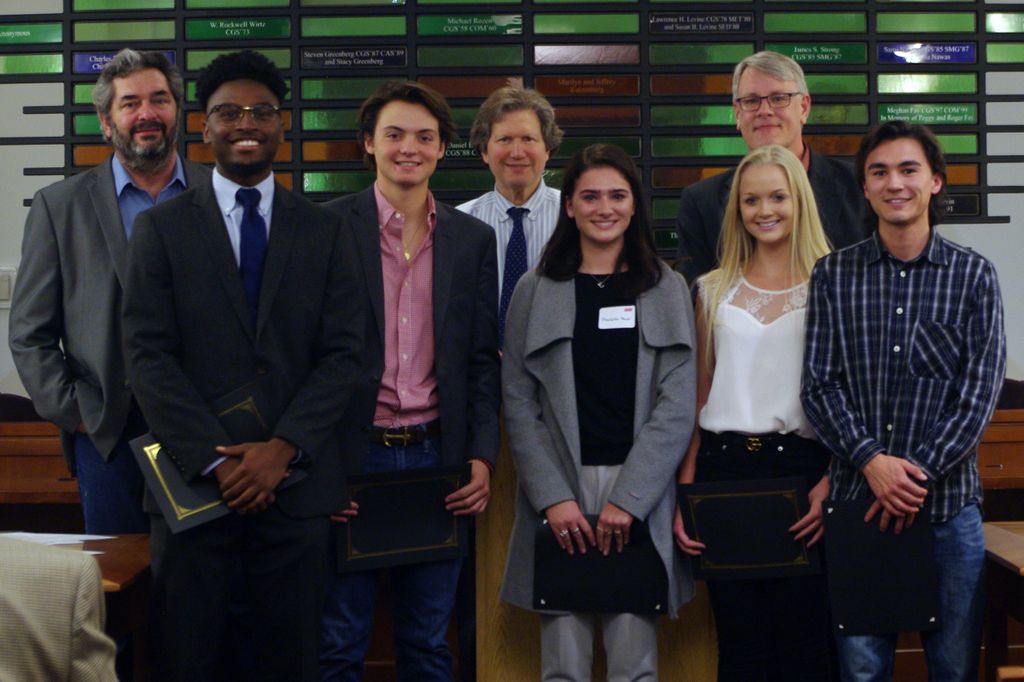Award-Winning Capstone Projects: CRISPR
The Team
Samuel Agate, Charlotte Bacon, Allyson Buehler, Josh Nam, Emmanuel Reid, John Wetzel, Maura Woods
The Problem
CRISPR is a novel and revolutionary gene-editing technique. But how should we think about its future and the ethics and regulation around its use?
Praise from Professors
College of General Studies faculty members called this Capstone “well-written,” with a clear and concise description of the science of CRISPR and a clear explanation of why the method is so widely used today. The students showed a “thorough understanding of current legislation” and led the reader to “the important need for more regulation and oversight.” The faculty said, “To go with their all-encompassing introduction to and understanding of the the problem, the authors’ thoughtful, well-reasoned, and extensive solution would end up benefiting all Americans concerned about the future of biotechnology.”
How They Succeeded
- Emmanuel Reid (CGS’18, COM’20): Our capstone succeeded because we placed a premium on task delegation and completion and group discipline from early on. From the beginning, we communicated clearly that if someone has a job to do, they need to do it; stressing how individual performance contributed to overall group success helped give everyone get their respective tasks completed in a timely manner. Also, when we were together, we focused on business. We kept our social lives separate from the in-person meetings, and because we didn’t share too much time outside the group setting naturally, that helped us stay focused. We also were disciplined in doing extensive background research on the topic before writing. We had a dense science topic, and we had to be disciplined and execute due diligence in the beginning stages of constructing the paper.
What They Learned
- Emmanuel: The most important thing I learned was playing to my strengths. I had to recognize I could not do everything. There were multiple times another student was more apt to do something for the benefit of the group, and I had to be humble enough to support them as they demonstrated their strengths. That level of humility helped the group work well together and improved team dynamics.
Any tips?
- Emmanuel: Group scheduling is a pain, especially at the end of the semester. So anticipate a lot of rescheduling and time conflicts when trying to meet up for a group. But don’t let that stop you. Figure out effective, clear modes of communication for your group. This includes figuring out which channels are the best for your group (Skype, Slack, FaceTime, iMessage, GroupMe, WhatsApp, etc). This eliminates excuses and holds people accountable. Don’t be afraid to be vocal about grievances about work ethic of team members, either. The group wins or loses, so make sure you are a dependable, hard-working team member.
